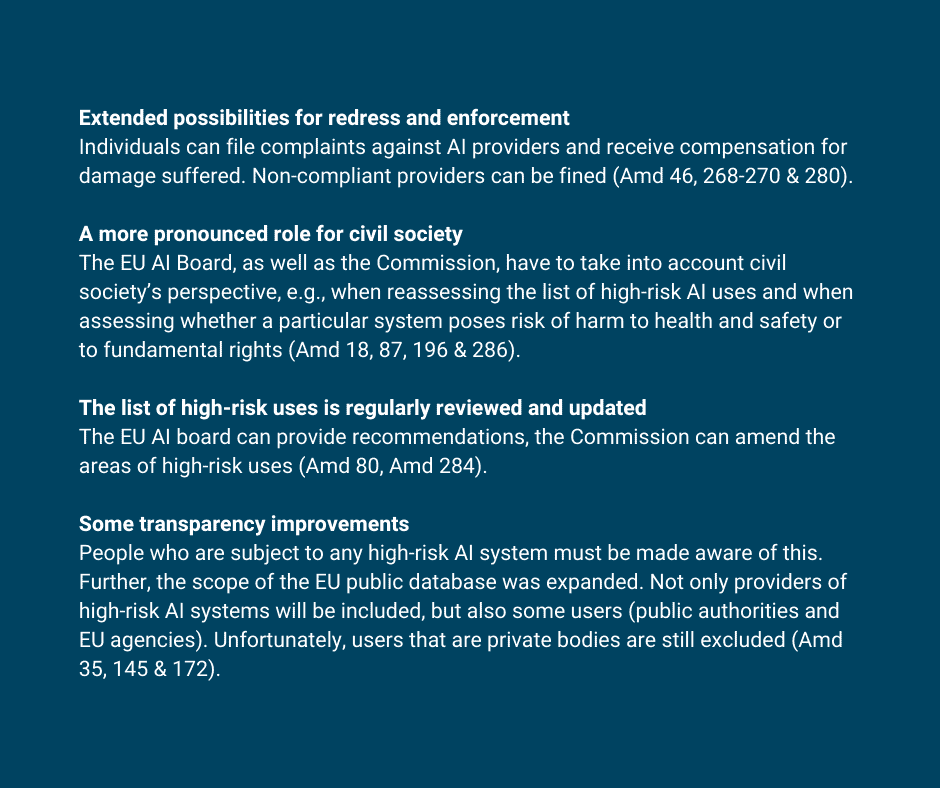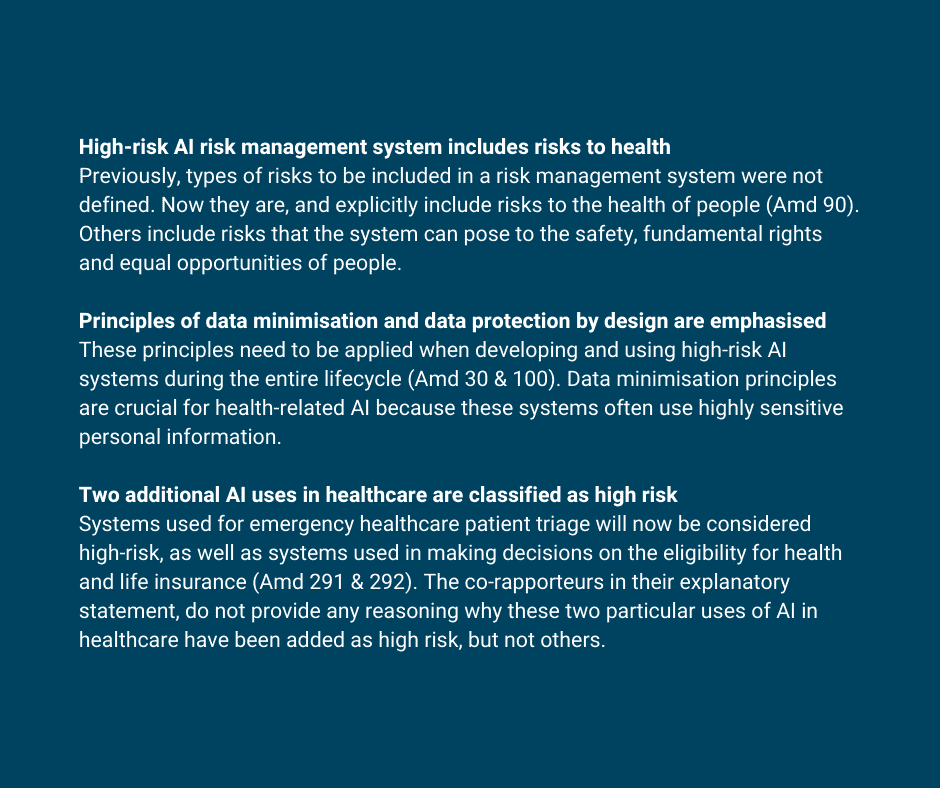In their long-awaited draft report, published on Friday 22 April, the European Parliament’s Internal Market and Consumer Protection (IMCO) and Civil Liberties, Justice and Home Affairs (LIBE) committees, led by MEPs Tudorache and Benifei, proposed amendments to the Commission’s Artificial Intelligence (AI) Act regulatory proposal. The report sets outs some important amendments that have the potential to strengthen the regulation and its enforcement, providing greater protection of the rights and wellbeing of all in the European Union (EU). However, it falls short in other areas, including the essential protection of health.
Some of the gains:

What does the report mean for health and regulation of health-related AI?
Earlier this year, we looked at how well the Commission’s proposal regulated health-related AI, and we made several recommendations to strengthen its regulation, some of which are (partially) addressed in the IMCO/LIBE report (e.g., foreseeable use also leading in risk classification, inclusion of some additional health-related AI as high-risk, and extension of the scope of the EU public database). Some progress made through the IMCO/LIBE report will benefit health and the regulation of health-related AI specifically.
Some wins we see in this area are:

While these changes are highly relevant, public health, unfortunately, largely remains an afterthought. This is despite many believing healthcare will be one of the main areas in which AI will be transformative, and despite renewed interest in public health and understanding of the importance of strong health systems over the past two pandemic-stricken years.
Specifically, the report falls short in strengthening the regulation of health-related AI which, as we have argued before, is much broader than its current narrow ‘high-risk’ definition (medical devices, emergency medical first response services, emergency patient triaging and health insurance eligibility). Indeed, many health-related systems that don’t act on individual, but hospital or health system level, are currently left unregulated. To improve this, it’s important that health is added as separate header to Annex III, and that clear criteria are developed based on which health-related AI can be assigned a high-risk status.
Health-related AI should be carefully regulated because of the specific vulnerabilities of this field to patients and consumers. These include risk to the autonomy, privacy, equal treatment, non-discrimination against, and health of individuals. Many health-related AI systems are used to determine the distribution of care resources, will use sensitive health data and influence health decisions. These systems have the potential to impact the lives of all EU citizens, and deserve special consideration and regulation.
On 11 May 2022, the current report will be discussed in the IMCO and LIBE committees, but plenary votes won’t happen till November. We wont’ be sitting by and waiting, but will use the time to the fullest to focus MEPs’ minds on the need to strengthen regulation of health-related artificial intelligence. This is the only way to ensure patients and their rights are protected and society will benefit most from the impressive innovations happening in the field.
Read our report Interpreting the EU Artificial Intelligence Act for the Health Sector